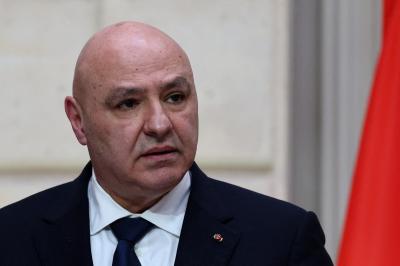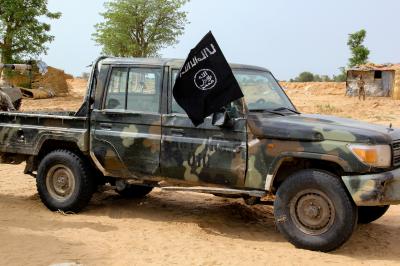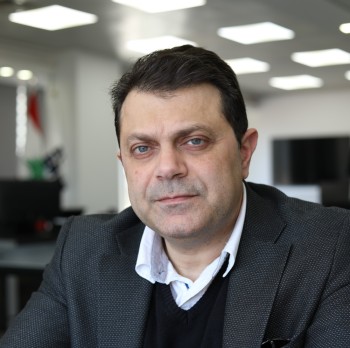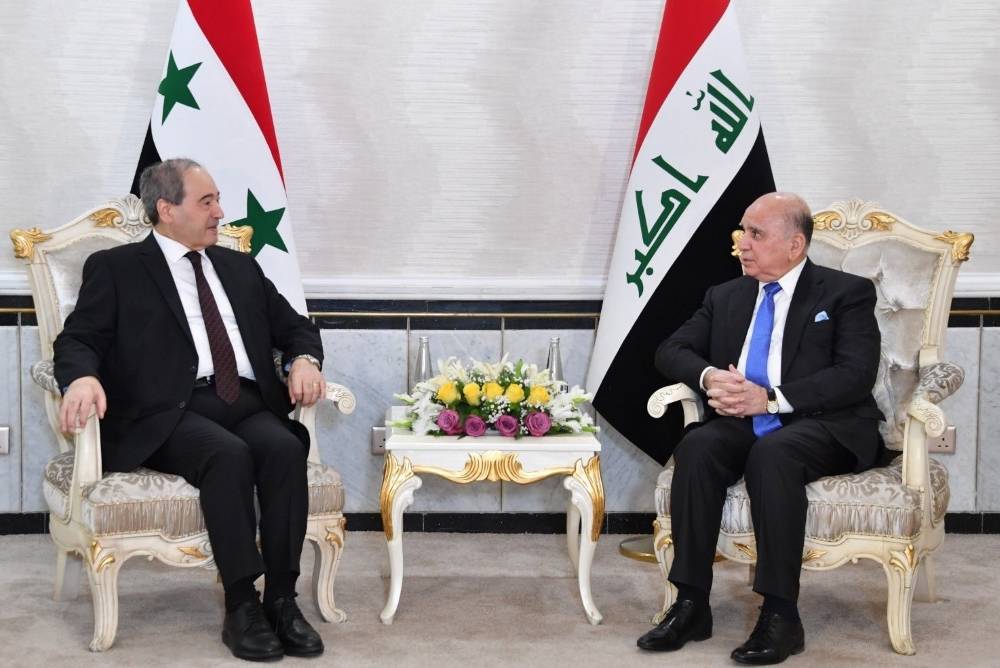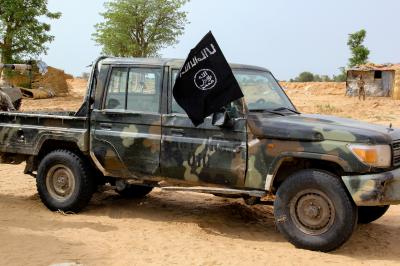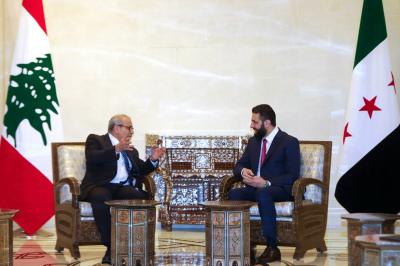In a significant development, Syrian Foreign Minister Fayçal Al Meqdad has made an important visit to Baghdad, engaging in a critical meeting with his Iraqi counterpart, Fouad Hussein. While some observers see this visit as an extension of Al Meqdad's previous tours of several Arab capitals like Cairo, Riyadh, Tunis, and Algiers - all part of normalizing relations between Syria and the Arab countries - it's crucial to note the particular importance of this visit due to Iraq's key role for Syria in various mutual interest areas.
The Syrian-Iraqi-Iranian strategic alliance!
- The first element is closely related to Iraq's geographical situation, situated between Syria and Iran, two strategic allies since 1980. Thus, Minister Al Meqdad's visit to Iraq is part of an effort to strengthen ties with Baghdad, aiming to enhance land connections between Syria and Iran via Iraqi territory. This approach aims to create an axis that unites Tehran, Baghdad, and Damascus, despite obstacles such as the continuous presence of U.S. forces in Iraq, and the establishment of bases in northeastern Syria and the Tanf region on the Iraq-Syria border, obstructing land communications between Baghdad and Damascus.
This brings us to the:
- second aspect of this visit, which is to deepen relations with Baghdad as part of coordinated efforts between Syria and Iraq to confront the American occupation in both countries and achieve their liberation. It's worth noting that this approach aligns with Tehran's declared strategic objectives, aiming to evict the United States from the Middle East region, even though this goal is seen as particularly challenging. Clearly, this dimension requires a long-term process, ingrained in the strategic planning of Syria and Iran. A related aspect of this approach involves efforts made by Syria and Iraq to fight terrorism and counter armed groups opposing the Syrian and Iraqi governments, thus challenging the pretext put forth by the U.S. to justify the establishment of bases in both countries in the name of counterterrorism.
Countering Turkey's expansionist ambitions
- The third aspect involves coordinating Iraq and Syria's positions in the face of Turkey's repeated assaults on their respective territories. Turkey has extended its grip in Syria, particularly in the strategic region of Idlib, located in the northwest of the country. Furthermore, it supports armed groups operating in this region, while solidifying its occupation along the Syrian-Turkish border. Damascus, on the other hand, is striving to halt this interference by mobilizing all available means, notably by cooperating with Iran and Russia within a platform to which Turkey has been invited. This initiative has led to meetings between the defense ministers of these four countries, followed by encounters between deputy foreign ministers, even before the presidential elections in Turkey. However, Syria remains wary of Turkey's intentions, which has previously reneged on its commitments, thus reducing the credibility of its promises, particularly after the Turkish elections that saw Recep Tayyip Erdogan reelected for another presidential term. Moreover, Turkey conducts recurring attacks on Iraqi territories under the pretext of combating Kurdish separatists, who use certain areas of northern Iraq as bases for their military operations against Turkish forces within Turkey's own borders. Such escalation is perceived by Iraq as an aggression against its sovereignty and territorial integrity. Another shared concern that brings Syria and Iraq together against Turkey is the dams built by the latter on the sources of the Tigris and Euphrates rivers, causing a significant water shortage in these two rivers that originate in Turkey, before crossing Syria and Iraq. This situation has resulted in a severe water crisis in northern Syria and Iraq, having recovery and Resolution of the Syrian Refugee Issue: Towards Sustainable Reconstruction.
- The fourth part of this visit concerns Syria's reconstruction efforts aimed at revitalizing its economy and rebuilding its hard-hit infrastructures, which were devastated during twelve years of war. Damascus has initiated discussions on this subject with several Arab countries, notably Egypt, Saudi Arabia, and the United Arab Emirates. Furthermore, it is banking on Iraq's active participation in this reconstruction process, given this country's wealth in oil resources and its extensive consumer market. Syria also relies on Iraq to serve as a land corridor allowing the passage of goods and aid from Iran to Syria, which would reduce dependence on maritime transport through the Indian Ocean, the Red Sea, the Suez Canal, and the Eastern Mediterranean, thus bypassing obstacles and risks imposed by Israel and the United States.
- The fifth aspect of this visit is closely tied to the issue of Syrian refugees scattered across several Arab countries. Syria hopes that Iraq will play an active role in resolving this matter, particularly due to the considerable number of Syrian refugees it hosts on its territory. The Iraqi Foreign Minister, Fouad Hussein, has announced efforts to organize a summit involving Iraq, Syria, Jordan, Saudi Arabia, Egypt, and Lebanon to coordinate their actions in facilitating the repatriation of these refugees. This initiative is aimed at neutralizing any potential maneuverings of the United States, feared by Syrian leaders, who could use this issue as a means of destabilization in various Arab countries, as part of Washington's broader efforts to reshape the geopolitics of the Arab Levant region.
Conclusion
In order to ensure the success of Syria's coordinated efforts with Iraq in stabilizing the political situation in Baghdad, despite the divisions that have emerged among the political elite, causing significant upheavals in recent years, it is crucial to consider the ongoing tensions between Iran and the United States to ensure their respective influence in this country.
 French
French


